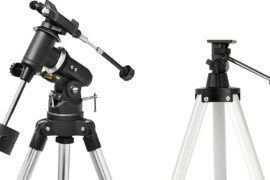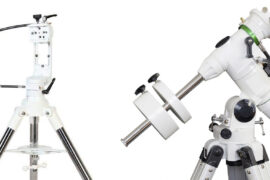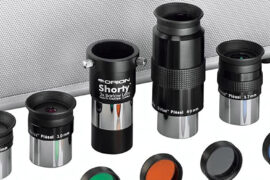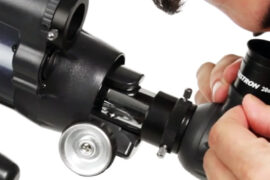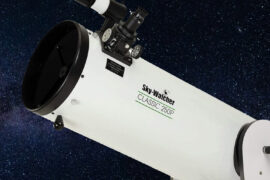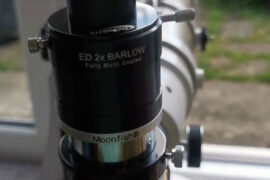Diving into the multitude of telescope accessories as a beginner can be overwhelming. There are so many options to choose from with different specifications and numbers. Even the functionality can seem so similar between one and the other.
This is exactly the case with focal extenders and Barlow lenses. They seem to do the same thing, so what’s the difference between them? which one is better? and more importantly, which one should you spend your hard-earned money on to get the most out of?
Let’s explore this question.
Short answer: Both Barlow lenses and focal extenders do the same thing. The objective of both is to increase the power of a telescope’s eyepiece in order to reach an image with bigger magnification.
But they do have certain differences that can make one or the other better for certain situations and depending on what your objective is.
What does a focal extender do?
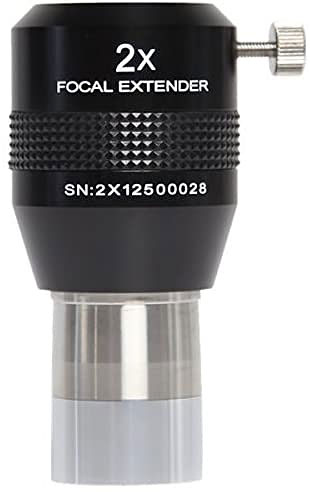
Focal extenders are accessories that are placed before the eyepiece in a telescope. They fit in the same slot where the eyepiece would go and they can hold an eyepiece.
They are used to decrease the focal length of an eyepiece. This, in turn, increases the magnification of the eyepiece, so it will effectively act as an eyepiece of a different size.
The amount the magnification will be increased is defined by the divergence of the focal extender. So, for example, if you have a 20mm eyepiece and a 2x focal extender, you will get the same magnification as if you were using a 10mm eyepiece.
This can be helpful for multiple reasons.
First of all, a focal extender automatically doubles the number of magnification levels you have access to with your eyepiece collection. So, if you have 4 eyepieces of different sizes, you will immediately get access to 8 different magnifications without having to buy additional eyepieces.
Focal extenders are also used to maintain high eye relief (the necessary distance between your eye and the eyepiece to view the image comfortably). Eyepieces with a shorter focal length also have low eye relief, which can be uncomfortable for some people, especially eyeglass users. Focal extenders solve this problem because they allow you to use the longer eyepieces with the higher eye relief, while getting a bigger magnification, therefore getting the best of both worlds.
Extenders come in different divergences, or multipliers, like 2x, 3x, and even 5x.
But doesn’t that sound a lot like a Barlow lens then, so what’s the difference?
Differences between a Barlow lens and a Focal extender
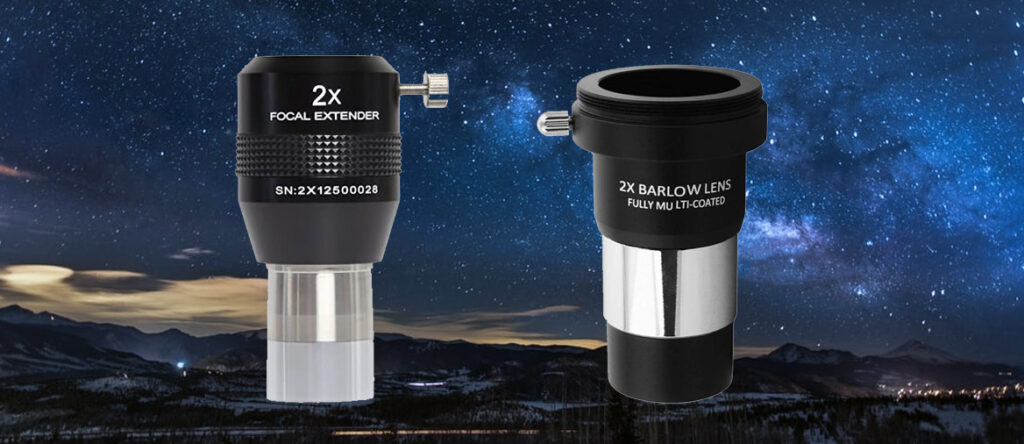
While they have very similar functionality, there are some key differences between these two devices.
- They main thing that makes focal extenders different from a Barlow is their design. Focal extenders use 4 inner lenses to transmit the light, and their internal composition is a lot more sophisticated. Barlows on the other hand, only use a single lens and their design is quite simple.
- Because of this additional pieces, Focal extenders also gain a lot of weight. The average Barlow lens weighs somewhere between 3 to 5 ounces (85 to 140 grams) while a focal extender can weigh up to 9 ounces (250 grams).
- In terms of usability, focal extenders maintain the eye relief of the eyepiece being used, while Barlows generally increase the eye relief. This is generally a good thing, but there are specific cases where the eye relief can become too high so its not always desirable to increase it.
- Finally, because of all the additional pieces and complexity, focal extenders are also considerably more expensive than Barlows on average.
- Focal extenders tend to have better light transmission and minimal optical errors in comparison with the average Barlow, however, there are high-end Barlows that can perform just as good.
So, which one should you pick?
The answer really depends on your needs.
If you need predictable and high eye relief because you wear glasses or high-powered eyepieces that are too uncomfortable for your eyes, then a focal extender will be great for you.
For everyone else, Barlow lenses are going to be good enough 95% of the time. Unless you are an advanced user with very specific performance needs, you will not notice much of a difference in terms of image quality. We have written about our favorite Barlow lenses before if you need specific recommendations.
Summary
- Focal extenders and Barlow lenses have pretty much the same functionality
- Focal extenders have slightly better performance and design but also a higher price tag
- Barlow lenses have a better value to price ratio unless you have specific needs, like eyeglass users.


